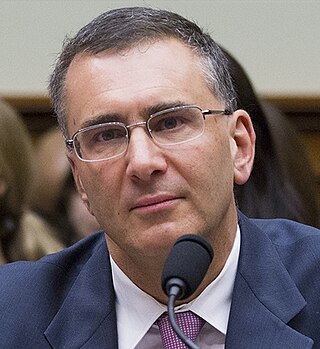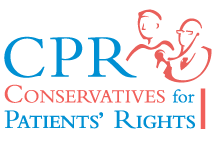Related Research Articles

William Maher is an American comedian, writer, producer, political commentator, actor, and television host. He is known for the HBO political talk show Real Time with Bill Maher (2003–present) and the similar late-night show called Politically Incorrect (1993–2002), originally on Comedy Central and later on ABC. In 2022, Maher started the podcast Club Random.

Maxwell Sieben Baucus is an American politician who served as a United States senator from Montana from 1978 to 2014. A member of the Democratic Party, he was a U.S. senator for over 35 years, making him the longest-serving U.S. senator in Montana history. President Barack Obama appointed Baucus to replace Gary Locke as the 11th U.S. Ambassador to the People's Republic of China, a position he held from 2014 until 2017.

Sanjay Gupta is an American neurosurgeon, medical reporter, and writer. He serves as associate chief of the neurosurgery service at Grady Memorial Hospital in Atlanta, Georgia, associate professor of neurosurgery at the Emory University School of Medicine, member of the National Academy of Medicine and American Academy of Arts and Sciences and is the chief medical correspondent for CNN.
Quentin David Young was an American physician who was recognized for his efforts in advocating for single-payer health care in the United States. An activist who opposed the Vietnam War and worked on the Civil Rights Movement, Young was best known for speaking out about social justice in the realm of health policy.
Physicians for a National Health Program (PNHP) is an advocacy organization of more than 20,000 American physicians, medical students, and health professionals that supports a universal, comprehensive single-payer national health insurance program. Since being co-founded in 1987 by physicians David Himmelstein and Steffie Woolhandler, PNHP has advocated for reform in the U.S. health care system.

Ezekiel Jonathan "Zeke" Emanuel is an American oncologist, bioethicist and senior fellow at the Center for American Progress. He is the current Vice Provost for Global Initiatives at the University of Pennsylvania and chair of the Department of Medical Ethics and Health Policy. Previously, Emanuel served as the Diane and Robert Levy University Professor at Penn. He holds a joint appointment at the University of Pennsylvania School of Medicine and the Wharton School and was formerly an associate professor at the Harvard Medical School until 1998 when he joined the National Institutes of Health.
The Health Care Justice Act (HCJA) was a law in Illinois that sought "to insure that all residents have access to quality health care at costs that are affordable". The Health Care Justice Campaign led public advocacy for the act, which was passed after a two-year fight and took effect on July 1, 2004. In the state legislature, the act was spearheaded by the chair of the Senate Health and Human Services Committee, Barack Obama.

Jonathan Holmes Gruber is an American professor of economics at the Massachusetts Institute of Technology, where he has taught since 1992. He is also the director of the Health Care Program at the National Bureau of Economic Research, where he is a research associate. An associate editor of both the Journal of Public Economics and the Journal of Health Economics, Gruber has been heavily involved in crafting public health policy.
Healthcare reform in the United States has a long history. Reforms have often been proposed but have rarely been accomplished. In 2010, landmark reform was passed through two federal statutes: the Patient Protection and Affordable Care Act (PPACA), signed March 23, 2010, and the Health Care and Education Reconciliation Act of 2010, which amended the PPACA and became law on March 30, 2010.

During the 2008 U.S. presidential campaign, controversy broke out regarding Barack Obama's relationship with Bill Ayers, a professor at the University of Illinois at Chicago, and a former leader of the Weather Underground, a radical left organization in the 1970s. Investigations by CNN, The New York Times and other news organizations concluded that Obama did not have a close relationship with Ayers.
Healthcare-NOW! is a non-profit grassroots coalition in support of the single-payer health care movement for the United States. Healthcare-NOW!'s stated goal is to implement the Medicare for All Act.

Conservatives for Patients' Rights (CPR) is a health care pressure group founded by Rick Scott in February 2009. Scott has stated that CPR has an intention of putting pressure on U.S. Democrats to enact health care legislation based on free-market principles. CPR opposes the broad outlines of President Obama's health care reform plan, and has hired Creative Response Concepts, a public relations firm which previously worked with the Swift Boat Veterans for Truth.
The history of health care reform in the United States has spanned many decades with health care reform having been the subject of political debate since the early part of the 20th century. Recent reforms remain an active political issue. Alternative reform proposals were offered by both of the major candidates in the 2008, 2016, and 2020 presidential elections.
The healthcare reform debate in the United States has been a political issue focusing upon increasing medical coverage, decreasing costs, insurance reform, and the philosophy of its provision, funding, and government involvement.
The public health insurance option, also known as the public insurance option or the public option, is a proposal to create a government-run health insurance agency that would compete with other private health insurance companies within the United States. The public option is not the same as publicly funded health care, but was proposed as an alternative health insurance plan offered by the government. The public option was initially proposed for the Patient Protection and Affordable Care Act, but was removed after independent Connecticut senator Joe Lieberman threatened a filibuster.
A health insurance cooperative is a cooperative entity that has the goal of providing health insurance and is also owned by the people that the organization insures. It is a form of mutual insurance.
Healthcare rationing in the United States exists in various forms. Access to private health insurance is rationed on price and ability to pay. Those unable to afford a health insurance policy are unable to acquire a private plan except by employer-provided and other job-attached coverage, and insurance companies sometimes pre-screen applicants for pre-existing medical conditions. Applicants with such conditions may be declined cover or pay higher premiums and/or have extra conditions imposed such as a waiting period.

The President of the United States Barack Obama discussed his plan for health care reform in a speech delivered to a joint session of the 111th United States Congress on September 9, 2009 at 8:00 PM (EDT). The speech was delivered to Congress on the floor of the chamber of the United States House of Representatives in the United States Capitol. House Speaker Nancy Pelosi presided over the joint session and was accompanied by the President of the United States Senate, Joe Biden, the Vice President of the United States. Energy Secretary Steven Chu was chosen as the designated survivor and did not attend the speech.
There were a number of different health care reforms proposed during the Obama administration. Key reforms address cost and coverage and include obesity, prevention and treatment of chronic conditions, defensive medicine or tort reform, incentives that reward more care instead of better care, redundant payment systems, tax policy, rationing, a shortage of doctors and nurses, intervention vs. hospice, fraud, and use of imaging technology, among others.
The Medical Committee for Human Rights (MCHR) was a group of American health care professionals that initially organized in June 1964 to provide medical care for civil rights workers, community activists, and summer volunteers working in Mississippi during the "Freedom Summer" project. Tightly associated with the Civil Rights Movement, Martin Luther King Jr. notably addressed the 1966 MCHR convention. The organization remained active for years afterward in terms of fighting for disadvantaged Americans to have expanded access to health services, becoming a part of the "new left".
References
- 1 2 Dorning, Mike (2009-07-29). "Obama's longtime doctor says healthcare reform plan falls short". Los Angeles Times . Retrieved 2009-08-16.
- 1 2 3 Whelan, David (2009-06-18). "Obama's Doctor Knocks ObamaCare". Forbes . Retrieved 2009-08-16.
- ↑ Halperin, Mark. "The Page: Letter From Obama's Doctor". Time . Archived from the original on June 25, 2009. Retrieved 2009-08-16.
- ↑ Seheiner, David (December 15, 2016). "My Last Patient". Chicago .
- ↑ Stein, Sam (2009-07-29). "Obama's Doctor: President's Vision For Health Care Bound To Fail". Huffington Post . Retrieved 2009-08-16.
- ↑ "Obama's former doctor critical of White House health care plan". CNN . 2009-07-30. Retrieved 2009-08-19.
- ↑ "President Obama's Former Physician Wants More Sweeping Health Care Reform; Remembering Eunice Kennedy Shriver; John Hughes Remembered". CNN . Larry King Live. 2009-08-11. Retrieved 2009-08-16.